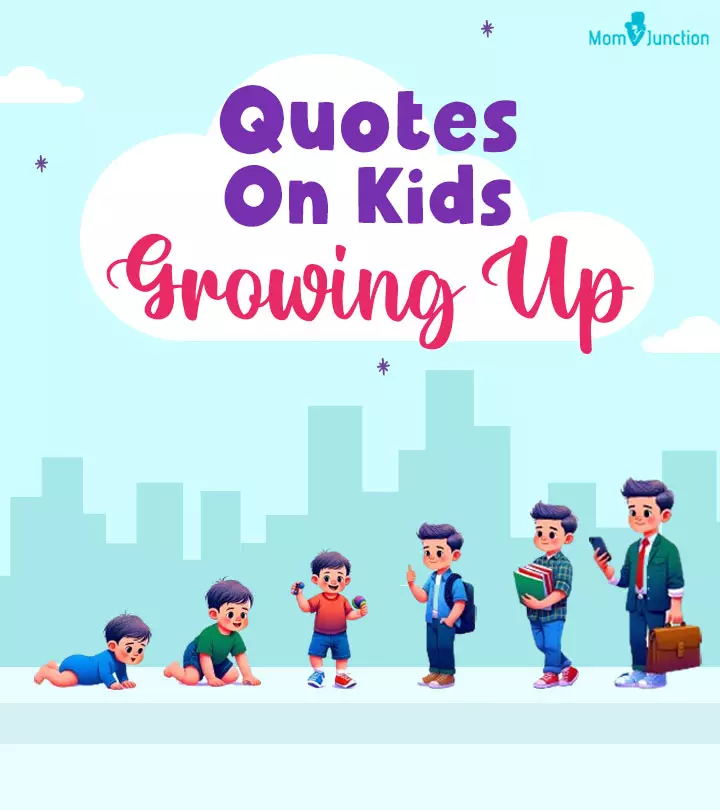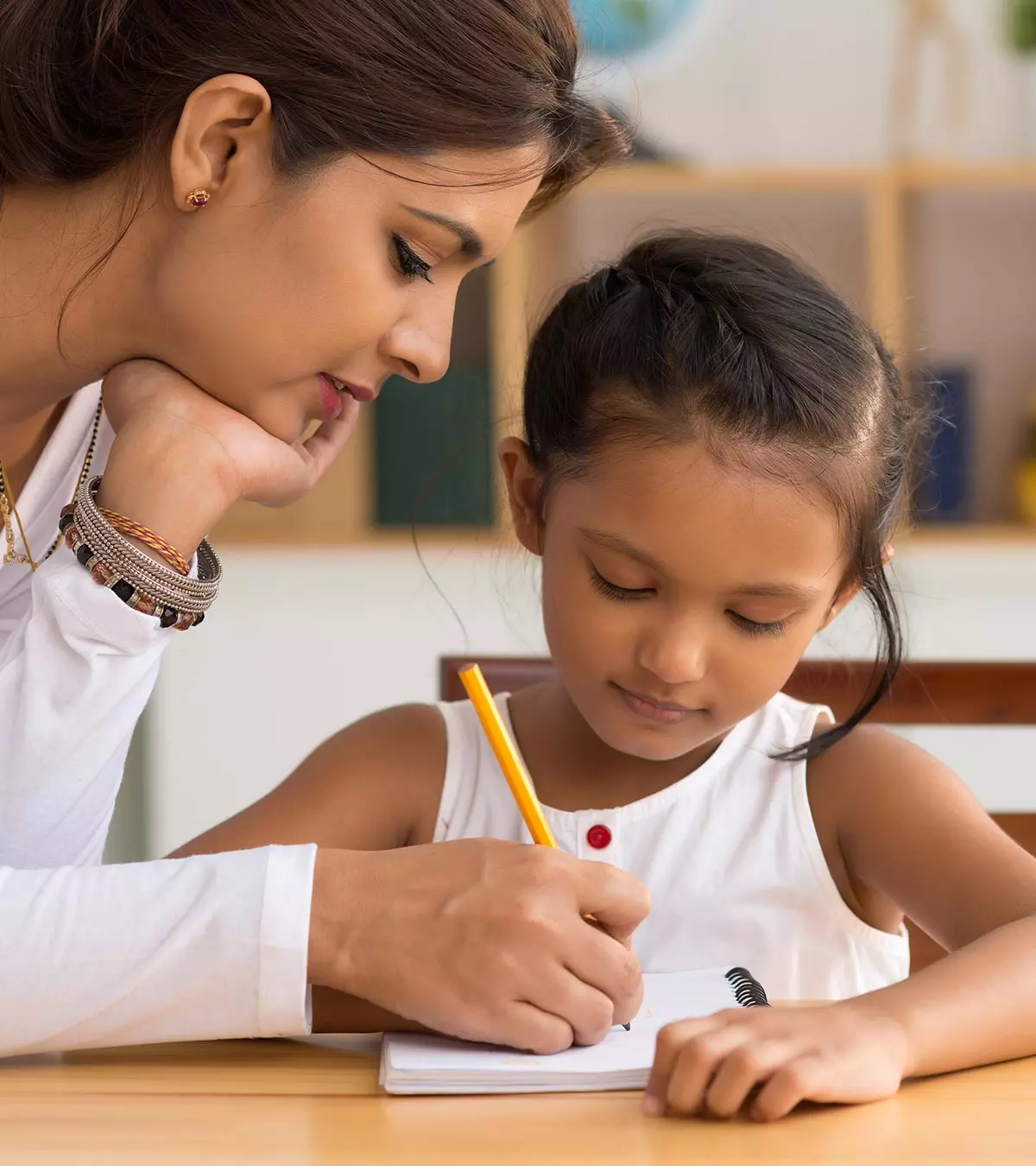
Image: Shutterstock
Homeschool vs. public school – the debate has intensified since the Covid pandemic. Traditional schools offer familiar structures, regular assessments, and social or co-curricular development opportunities. On the other hand, homeschooling appeals to parents for its flexible schedule, customized learning, and individual attention. These features, along with the statistical comparison that homeschooled students (grades K to 12) tend to score 15 to 25 percentile more in standard school exams, have contributed to an annual rise of homeschoolers in the US by two to eight percent (1). Yet, it is essential to note that both public and homeschooling have pros and cons. So whether you’re considering homeschooling out of dissatisfaction with the conventional curriculum or for personal reasons, our article will offer valuable insights into public and homeschool approaches and their potential outcomes to help you make an informed choice.

Key Pointers
- Educating your child at home has advantages such as undivided attention and focus on the child’s talents.
- Homeschooling provides a safe learning environment and improves parent-child bonding through spending more time together.
- Parents can choose their preferred curriculum and have flexible schedules with homeschooling.
- However, homeschooling is expensive, lacks structure, and may be difficult to teach complex subjects unless you’re an expert.
- Homeschooled children may miss out on activities such as sports, projects, and class trips.
What Is Homeschooling?
Homeschooling is educating the child at home. Also known as home education, this parent-led schooling is legal in several parts of the world, including the UK and the US. Dissatisfaction with the curriculum, poor quality of instruction, lack of a safe school environment, special needs, and religious or moral concerns are a few reasons parents choose not to send their child to a public school.
Like a public and a private school system, homeschooling also has its pros and cons. But how do you determine if homeschooling is better and works for you and your children? Keep reading to know.
Homeschool Vs Public School—Differences
Each system offers distinct approaches to learning, shaped by divergent structures, resources, and ideologies. These differences influence educational outcomes, social experiences, and family dynamics, making the choice a critical consideration for every family. Here are a few differences that are often associated with the public school vs homeschool debate.
| Public Schools | Homeschooling | |
|---|---|---|
| Socialization | Fosters broad social interactions through daily contact with students and faculty. | Involves limited social exposure and relies on structured activities and groups. |
| Cost | Public education is taxpayer-funded and generally incurs minimal direct costs to families. Private schools tend to be more expensive. | Incurs expenses for educational materials and other resources. |
| Parental involvement | Allows parents to rely on certified educators to guide their children’s academic progress, reducing the need for day-to-day parental involvement in educational activities. | Demands extensive parental involvement in all aspects of education, from curriculum selection to daily teaching and extracurricular management. |
| Extracurricular activities | Provide a wide array of extracurricular activities, from sports to arts and academic clubs, facilitating a well-rounded education. | Limited opportunities for extracurriculars. Children and parents need to seek out or even create their own extracurricular experiences. |
| Special education services | Equipped with specialized programs and resources to support students with special needs, ensuring they receive appropriate educational accommodations. | May lack specialized resources, requiring parents to find and finance external support services. |
| Educational resources | Access to extensive educational resources, including libraries, science labs, and technology, all funded by public finances. | Depend on personal investments to provide similar resources, which can vary widely in quality and accessibility. |
| Diversity of instruction | Students benefit from learning from multiple teachers with different specializations and teaching styles, enhancing educational breadth and depth. | Typically involves instruction from one or a few individuals, which can limit the diversity of pedagogical approaches and subject expertise. |
| Accountability | Operate under strict accountability to educational standards and school boards, ensuring a consistent level of education across institutions. | Face varied accountability standards, often determined by less stringent state regulations, leading to a wide range of educational outcomes. |
| Safety and security | Face risks related to bullying, physical altercations, or external threats despite security measures such as surveillance and guards. | Greater control over the child’s environment, reducing exposure to security threats, bullying, peer pressure, and potential violence. |
| Academic outcomes | Offers a standardized curriculum on which some students may excel while others struggle with optimal performance. | Tailored learning experience enables strong progress at one’s own pace, leading to better academic performance. |
| Religious freedom | Secular environment and curriculum that limits opportunities for religious education or expression during school hours. | Freedom to incorporate religious teachings into the child’s curriculum to align education with one’s family values and beliefs. |
| Social and peer pressure | Offers exposure to a diverse range of peers, fostering social development. However, peer pressure related to behavior, academic performance, or materialistic expectations may cause identity conflicts. | Less peer pressure since the child is in a controlled environment with fewer interactions with same-age peers through community activities and homeschooling support groups. Allows the child to maintain individuality. |
The graph represents the percentage of homeschooled children, ages 5-17 years, from 1999 to 2016 in the US. There was a moderate increase through the years until 2012, from 1.7% in 1999 to 3.4% in 2012, but the percentage slightly dropped to 3.3 in 2016 (4).

Percentage of home-schooled students in the US, ages 5-17
Source: Parent and Family Involvement in Education Survey of the NHES, 2003, 2007, 2012, and 2016.Advantages Of Homeschooling
Abraham Lincoln, Virginia Woolf, Wolfgang Amadeus Mozart, Alexander Graham Bell, Julian Assange, and Emma Watson.
These are some of the many who were homeschooled for some or most of their childhood. And they became successful. Then there were some who were not as successful and wished they had a proper public school education.
Although it is considered to be an alternative form of education, homeschooling is one of the oldest forms of education in the world. That’s right.
People were taught at home by parents or designated tutors before the onset of the public schooling system. Public schools and private schools may have become the norm these days, but there are people who prefer personalized homeschooling to the modern education system. Here are reasons why.
1. One-on-one teaching
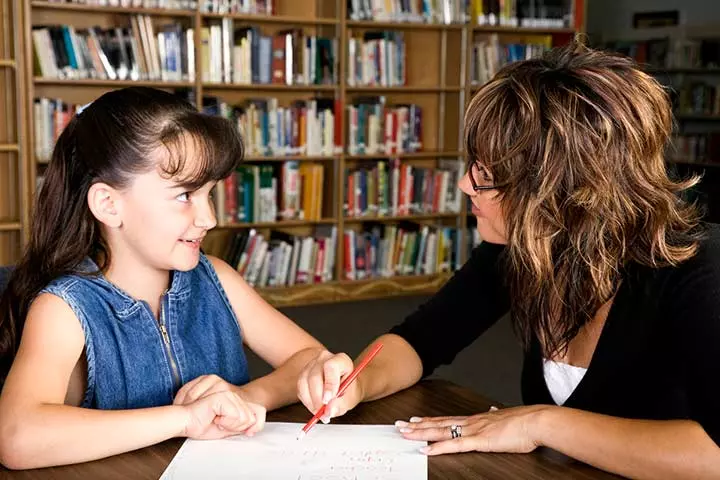
A public school teacher has to focus on all the children in the class, while in homeschooling, the parent mostly focuses only on one child. The child gets help with the subject immediately. However, if more than one child is learning the same lessons, the parent’s attention may be a bit divided.
In individualized teaching, the teacher has an idea of what the student knows about the subject and what they don’t. Additionally, a homeschooling parent also has the freedom to dwell on a particular topic for longer if the child needs time to understand it. The parent may also provide the child with online resources, such as videos by subject matter experts, to facilitate their learning.
2. Flexible schedules
If your child goes to a public school, you certainly need an early alarm every day! You may race against time every morning in an attempt to get your child to school on time. In all the chaos, the child sometimes misses breakfast, the most important meal of the day.
With homeschooling, mornings can be more relaxed, your study or play schedules are self-paced or according to your child’s comfort.
That said, it is recommended that you have a daily schedule and try to follow it to teach the child discipline. You can change the schedules weekly, fortnightly, or monthly.
3. Learning for knowledge, not grades

While students in traditional schools do learn the subject, the learning may not be enough to gain knowledge as they focus more on clearing examinations. However, the absence of competition in independent studying or homeschooling encourages the child and the parent to focus on learning for knowledge and implementation, fostering personal growth and development.
4. Control of the curriculum
Have you ever thought, “I wish they taught this to my kids at school”? Well, if you choose to homeschool, you get the option of diversity and inclusivity of subjects. Whether it is religious studies, humanities, or simple manners, you can add it to your curriculum. Similarly, you can decide how much of a subject the child should learn and when they should learn it.
You can include subjects that your child has a keen interest in, and remove what you think is inappropriate or irrelevant for their age. You also have the freedom to include your family’s values, which is not necessarily compatible with a public school curriculum.
You can also choose your own learning styles or tailor your teaching to fit the child’s dominant learning style, whether it be visual, auditory, or kinesthetic. You can make it a combination of online modules and text book reading, or you can limit your teaching to online modules alone. This tailored approach can lead to a more effective learning experience.
5. Time-saving
You need to take care of several things when the child goes to school. A lot of time is spent every day getting ready for school. Traveling to and fro, waiting for the school bus, and much more. Homeschooling saves you that time and also removes the need for homework. You can make the child learn and remember what he or she learned during the study hours so that you can use the rest of the day for other activities.
6. Parent-child bonding

Homeschooling allows you to spend more time with your child every day, and you get to know each other better. Spending productive time together is also one of the best ways to teach your child manners, social or public behavior, and personal boundaries. Studies indicate that
7. Safe learning environment
The world is not a bad place. But there are people who can considerably harm your child. Bullying, peer pressure, sexual assault, negative influence, and mental or physical abuse are some of the things that the child is vulnerable to in the outside world. Homeschooling ensures your child’s safety as they are protected from the harmful social elements to an extent.
Also, you won’t have to worry about sending the child out to school on a bad weather day!
8. Less paperwork
Projects, assignments, tests, and homework – these are the things that a school-going kid is usually bombarded with. Add to it the pressure of completing these tasks on time, you have a stressed out child or teenager. Homeschooling is sans such paperwork, and therefore less stressful.
In fact, you can use technology to teach your child at home. For instance, you can use online learning resources to deliver lessons on complex topics in math or science.
 Point to consider
Point to consider9. Focus on child’s talents
Public school education focuses on exposing the child to multiple subjects and topics. So a school-going kid may know more at a broad level but only to a limited extent. That is not necessarily the case with homeschooling. In homeschooling, you can focus on one subject or a specific topic that your child is interested in.
Disadvantages Of Homeschooling
In the US, around 54.8 million children are below the age of 18. Out of them, only around 3.1 million are homeschooled, while the rest go to public or private schools (1). Homeschooling may be better than public schools in some ways, but it is not for everyone. Here’s why.
1. Expensive
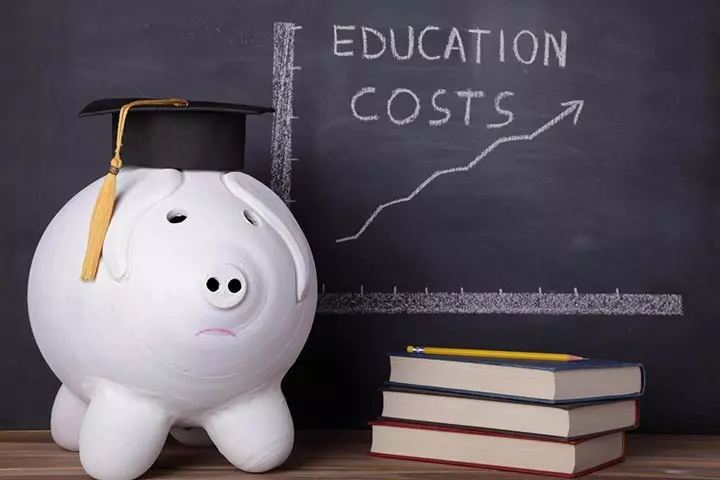
When you choose to homeschool, you don’t have to worry about tuition fees, transport, food, and stationery costs. So, you may think that homeschooling is less expensive than public schools.
But is it? Think about it.
When you choose to educate your child at home, you (or your spouse) have to put your career goals or ambitions aside and shift your focus to teaching the child. That means you have one less paycheck in the family and more or less the same expenses.
Tip: Consider a part-time occupation that works around the school hours or days to ensure they can meet their expenses. Procure books and learning resources from libraries and second-hand sources instead of investing in new material.
2. Lack of structure
Public schools are more structured and have a better-planned curriculum than home-schools. The school’s system has tried and tested teaching methodologies, credible sources of information, and standardized assessments.
A homeschooling parent has limited resources and has to rely on self not only to create a structure but also to adhere to it. That is easier said than done.
Tip: Go through the subject-wise curriculum from different school boards to gain inspiration and design a homeschooling curriculum that best suits the needs and interests of the child.
3. Limited coverage of subjects
In homeschooling, parents can choose to limit or even eliminate the subject from their curriculum, leaving the child with no knowledge of it. Also, it is not always possible for a parent to teach complex topics in subjects such as math, physics, chemistry, or calculus unless they are experts. This limits the amount of information that a child gets through homeschooling.
Tip: Provide the child with adequate reading materials and audio-visual tutorials on various topics from within and beyond the chosen subjects. It will help increase their general knowledge.
4. Absence of skilled and trained teachers
Homeschooling parents are not necessarily trained or skilled in delivering education. In most cases, they do not have first-hand homeschooling experience and are still learning the subjects. So, for the most part, homeschooling is an experiment for all of them. This may prevent the child from getting the quality education that trained and skilled teachers can provide in public or private schools.
Tip: Opt for a hybrid teaching model to ensure quality education. Enroll the child in online courses conducted by subject matter experts or log in to online educational platforms with pre-recorded video courses from teachers.
5. No time apart
When you choose to homeschool, you are doubling up as a teacher. So, you will spend most of your waking time with the child on a school day. In some families, this constant company may lead to helicopter parenting over children. Public schools allow you space to cultivate your interests and care. Don’t get us wrong. Spending time with the kids is an excellent thing to do, and every parent agrees on that. But sometimes, you need time for yourself, away from the kids, which a public school can provide.
Tip: Consider having an away-from-family day where children visit their relatives or peers to have fun with them. Within the family, incorporate a participative decision-making approach where all members can put forth their perspectives and meet their needs the right way.
6. Justifying to family and friends
It is not common for a parent to choose to homeschool over public schools, especially if no one in the household has been homeschooled before. So you may find that you are needing to justify your decision to your friends and family.
Parents who homeschool children also face social criticism often, as there are fewer advocates of homeschooling than there are for public schools. Yet, the trends seem to be changing, with the number of people opposing homeschooling decreasing from 73% in 1985 to 54% in 2001 (2). Is there a new statistic? It seems it may have decreased more since the pandemic.
Another aspect that you may want to consider is the misguided notion among children and youngsters that homeschooling kids is weird. All this criticism and questioning can even sow seeds of doubt in your mind, and sooner or later, you’d end up wondering if you made the right choice.
Tip: Establish clear boundaries with the family on how much influence they may have on what is suitable for the child. If they seem interested, encourage their participation in teaching the child a few new skills.
7. No socialization
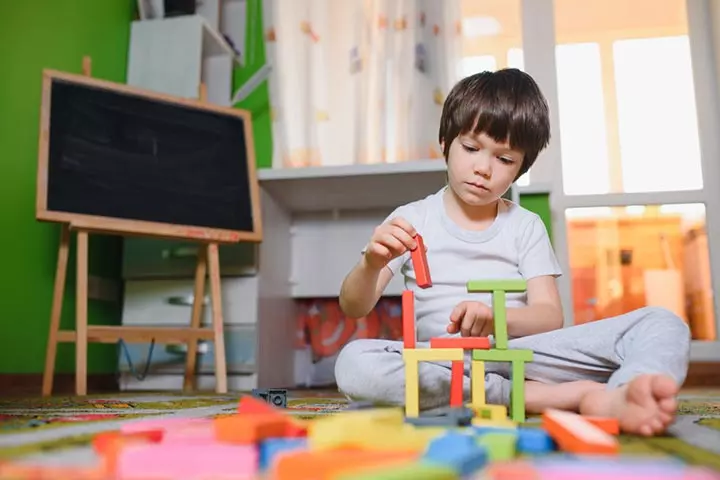
When children are educated at home, they may have less interaction with other kids their age. Even if they do, they do not experience the same things as school-going children. They do not experience school or class trips and projects, lunch with friends, those first crushes, and more!
It is not that homeschooled children are not good at socializing, but they may miss out on certain milestones or moments that school-going children may experience.
Tip: Encourage your child to attend church gatherings, family events, and other community events where they can meet new people. Take them to the park or playground and on field trips where they can meet children of their age.
8. Limited access to sports
You may teach your child to play a few games and sports when you homeschool them. But they may have fewer opportunities to play team sports regularly. For instance, swimming or gymnastics for kids are better taught by professionals. You may have to consider enrolling them in extra classes to teach these skills. Homeschooling also limits their opportunity to get into professional team sports, which can even get them into universities for higher education.
Most homeschooling parents also don’t get to enjoy their summer vacations as the other parents. A lot of their time is spent preparing for the curriculum and researching for the next school year.
Tip: Look for schools or private coaching centers that allow homeschoolers to enroll in their sports team. Encourage your child to join the team and regularly visit a gym to enhance their general fitness.
While there may be disadvantages to homeschooling, there are also ways to ensure that the child’s educational needs are met to your satisfaction. Let us look at the factors that may help you determine if homeschooling best fits your family.
Is Homeschooling The Right Choice For Your Family?
Homeschooling presents a unique opportunity to tailor education to the specific needs and pace of each child, potentially enhancing learning outcomes and deepening family relationships. However, it comes with its own set of limitations and might not be suitable for everyone. Here are eight factors to consider before finalizing homeschooling for your child.
1. Parental commitment
Choosing homeschool requires a substantial commitment from parents, who must dedicate time and effort to not only teach but also plan and organize comprehensive educational activities. Parents need to evaluate whether they have the time, energy, and skills to effectively facilitate their child’s education, as this role is crucial to the success of homeschooling. Even if you are a stay-at-home mom or dad, homeschooling may occupy a significant part of your daily work day.
2. Educational goals
Setting clear and achievable educational goals is essential in homeschooling. Families should define what they aim to accomplish through homeschooling, including specific learning objectives and desired outcomes. This clarity helps in ensuring the education provided meets all intended educational standards and personal aspirations.
3. Social opportunities
In contrast to public schooling, conventional homeschooling offers fewer socialization opportunities. As a result, it might impact a child’s personality and behavior with others. Parents should plan for and facilitate opportunities for their children to interact with peers through sports, clubs, and other community activities.
4. Financial impact
The financial implications of homeschooling can be substantial. Parents should consider costs related to curriculum materials, educational tools, and potential lost income if one parent is teaching full-time. It’s important to assess these financial aspects to determine if homeschooling is a viable option for the family.
5. Learning environment
Creating a conducive learning environment at home is crucial. This space should be quiet, organized, and equipped with the necessary resources to facilitate effective learning. A well-prepared environment can greatly enhance a child’s ability to focus and absorb information.
6. Support networks
Access to support networks, either local or online, can greatly benefit homeschooling families. These communities provide resources, guidance, and support and also offer social opportunities for both children and parents, helping to enrich the homeschooling experience.
7. Child’s needs
Consideration of a child’s individual needs, learning styles, and preferences is central to homeschooling. Tailoring education to these factors can help maximize the child’s engagement and success, making homeschooling a particularly effective educational choice for many children.
8. Long-term planning
Families need to consider how homeschooling fits into long-term educational and career goals. This includes planning for transitions to higher education or vocational training and ensuring that the child remains on a path that will support their future ambitions.
Why Most Parents Still Prefer Schools
Here are a few reasons why most parents continue to find the familiar environment of traditional schools appealing.
1. Competitive environment
Traditional schools foster a sense of healthy competition among kids, encouraging them to do better than the others. This urge to excel drives their focus and motivates them to work hard towards bigger goals. The school also provides avenues for holistic development through sports, art, music, and other co-curricular activities. Children’s performance in these areas and competitiveness to outshine their classmates may help them become skilled all-rounders.
2. Subject exposure
Public school education exposes your child, although minimally, to a variety of topics. From different branches of math, science, and humanities to literature and language, your child has some knowledge about every subject. They learn and understand these subjects to get good grades and move to higher classes.
As they progress to higher classes, the subjects are set within streams based on the career options available in the job market. This selection and classification make it easier for them to choose a field based on their passions. These fixed curriculums offer teachers some boundaries on how much of each subject they may teach the child to make it age-appropriate. The school may also provide laboratories or other facilities that allow the child to explore specific concepts practically.
3. Homework and assessments
Traditional schools allow children to explore their learning beyond the classroom. Homework, projects, and assignments offer a window to recap learning through practice and practical application. Periodic assessments and grade exams strengthen learning and allow teachers to estimate the depth of the student’s understanding. They enable students to clarify their doubts and help teachers modify their instruction style to cater to students’ needs. Furthermore, assignments associated with linguistic and literature classes may also encourage reading habits in children, making them proficient in multiple languages.
4. Peer relationships

At school, children meet people from different cultures, places, religions, and familial backgrounds. It helps them understand the concept of diversity and form deep bonds. From food to music and personal values, the peers from school tend to influence each other’s preferences and persona, molding the child into a more empathetic and non-judgemental person. Furthermore, peer bonding at school allows the child to develop deep friendships that can become a lifelong support system outside the family.
Frequently Asked Questions
1. What are the similarities between homeschool and public school?
The roles of students and teachers in homeschool and public school are similar in most ways. For homeschool and public schools, a standardized testing system is required to evaluate the students’ progress. Dependency on online and libraries to gather information is also a common point.
2. How much does homeschooling cost?
In the US, families spend a minimum of $600 to homeschool one student (1). The cost may increase based on the choice of curriculum, subjects, extracurricular activities, and the number of children.
3. How many hours a day should you homeschool a child?
The North Carolina Department of Administration suggests that you should homeschool a child for at least five hours on most school days (3).
4. What are the potential social challenges of homeschooling?
Homeschooling with limited exposure to peers and society can be detrimental to children and pose serious societal challenges. Such homeschooled children often miss out on the joys of interacting and playing with their friends. Due to this, they develop a lack of confidence while interacting with others in their day-to-day life, which may lead to problems in adulthood.
5. What is the impact of homeschooling on family dynamics?
Homeschooling can significantly impact family dynamics in various ways. First, it typically increases family bonding time, as parents and children spend more hours together during learning activities. This can strengthen relationships but may also put pressure on parents to balance educational duties with their personal and professional lives.
6. What qualifications do you need to homeschool your child?
Homeschool parents often need to have at least a high school diploma or graduation. In some states, parents should have a college degree or a teaching certificate (5). While non-mandatory, interested parents may opt for a course on home-based study to ensure they have the required skill set.
7. What is the percentage of homeschoolers who go on to college?
A comparative study on homeschooled students and the general population indicated that 74 percent of the homeschoolers between 18 and 24 years had taken at least some college classes. This rate is only 46 percent among the general population (6).
8. Are homeschooled students more successful?
Studies show that homeschooled students achieve higher GPAs on tests and perform better in college than other students. They also have a ten percent higher rate of graduation at 66.7 percent in comparison to other students, whose percentage of graduates stood at 57.5 (7).
Education is not the learning of the facts, but the training of the mind to think. – Albert Einstein.
Regardless of the educational approach you choose, the goal should be to provide quality education to your children. Homeschooling ensures personal attention to the child and can alleviate separation anxiety for the child or the parents. However, it requires significant perseverance and hard work from parents, who may have to put their careers on hold. Furthermore, the education system may lack funding to develop a good structure, potentially limiting a child’s opportunities for social interaction and co-curricular activities. It may also impact their career preparation. Hence, it is vital to consider all the factors to decide the most suitable mode of schooling for your child.
Infographic: Advantages And Disadvantages Of Homeschooling
With the availability of several modes of teaching and virtual learning, you might need help deciding if you should homeschool your child or send them to a public school. To make the process easier for you, we present the pros and cons of homeschooling your child. Read on and decode accordingly.
Some thing wrong with infographic shortcode. please verify shortcode syntax
Illustration: Advantages & Disadvantages Of Homeschool vs Public School

Image: Stable Diffusion/MomJunction Design Team
Are you wondering which educational environment is best for your child? Watch our video to find out if school or homeschooling produces better student outcomes!
References
- Research Facts On Homeschooling; National Home Education Research Institute.
https://nheri.org/research-facts-on-homeschooling/ - Homeschooling; CEPM, University of Oregon.
https://web.archive.org/web/20071114144844/http://eric.uoregon.edu/trends_issues/choice/home_schooling.html - Home School Requirements & Recommendations; North Carolina Department of Administration.
https://www.doa.nc.gov/divisions/non-public-education/home-schools/requirements-recommendations - Parent and Family Involvement in Education Survey of the NHES, 2003, 2007, 2012, and 2016; National Center for Education Statistics.
https://nces.ed.gov/national-center-education-statistics-nces/blogs - Parent Qualifications; Coalition for Responsible Home Education.
https://responsiblehomeschooling.org/research/current-policy/parent-qualifications/ - Homeschool Outcomes; The Coalition for Responsible Home Education.
https://responsiblehomeschooling.org/research/summaries/homeschool-outcomes/ - Home-Educated Doing Well at College: Research by Michael Cogan; National Home Education Research Institute.
https://nheri.org/home-educated-doing-well-at-college-research-by-michael-cogan/
Community Experiences
Join the conversation and become a part of our nurturing community! Share your stories, experiences, and insights to connect with fellow parents.
Read full bio of Dr. Caroline Hexdall
Read full bio of Sagari Gongala
Read full bio of Harshita Makvana
Read full bio of Kavita Kankani

















